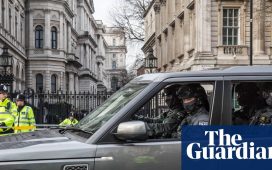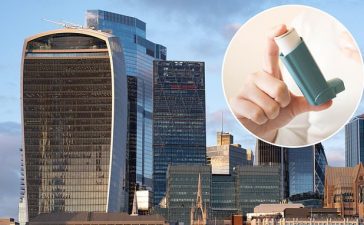It is also learnt that the entry of heavy vehicles will be restricted on select routes to create green corridors for VIPs and chartered plans will be pressed into action to ferry select dignitaries to and from Ayodhya.
Only those with a “nimantran patra” (invitation card) will be allowed to attend the consecration ceremony on 22 January.
Though estimates suggest that nearly 7,000-9,000 invitees are expected to be in attendance, the exact number will only be known once the Shri Ram Janmbhoomi Teerth Kshetra sends a final list to the heads of all security agencies in Uttar Pradesh.
Also Read: CISF takes over security at Ayodhya airport ahead of Ram temple consecration ceremony
Special unit, green corridors & chartered planes
According to police sources, a special task force comprising 10 top officers from across the state has been formed to oversee security preparations ahead of the event. This step was taken to increase “multifold vigilance” on “organised crime and mafia” in Ayodhya district.
“A specialised unit has been created for this task. STF (Special Task Force) units in other districts are also on high alert against organised crime, land mafia and terror activities in and around the area. We are also keeping track of communication between suspects. However, STF is there mainly to track criminal activity. The physical security will be handled by the local police and paramilitary units,” a source in the UP Police told ThePrint.
On the plan to create green corridors to ensure safe and smooth movement of VIPs, a second police source said the idea is to provide sanitised routes connecting the temple town to “Lucknow, Varanasi and Gorakhpur”.
A few dignitaries will be flown in using chartered flights to ensure that their movement does not lead to traffic snarls, the source added.
Among the key security measures to be put in place for the consecration will be the deployment of drones and installation of CCTV cameras at strategic locations across Ayodhya, besides the deployment of AI-based anti-drone technology to detect and intercept unmanned aerial vehicles (UAVs).
“This tech will help scan for radio frequencies and drones that are not authorised to fly in the area. Electro-optical and infrared sensors will detect such drones through visual and heat signatures,” said a third source.
Meanwhile, the Central Industrial Security Force (CISF) has taken over the security of the Maharishi Valmiki International Airport and is deploying as many as 150 personnel at the facility as a preventative measure.
(Edited by Amrtansh Arora)
Also Read: Ram temple workers pull double shifts to meet consecration deadline — ‘it’s God’s work’











